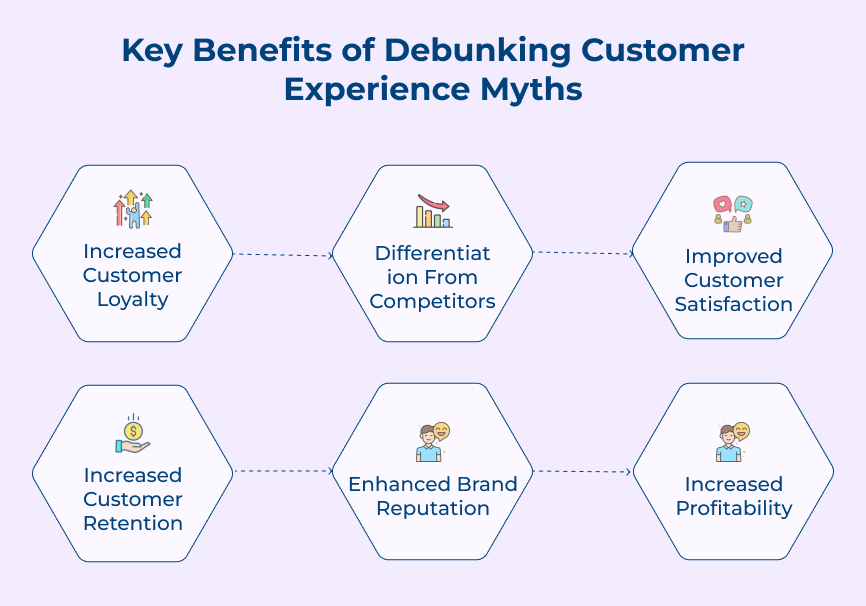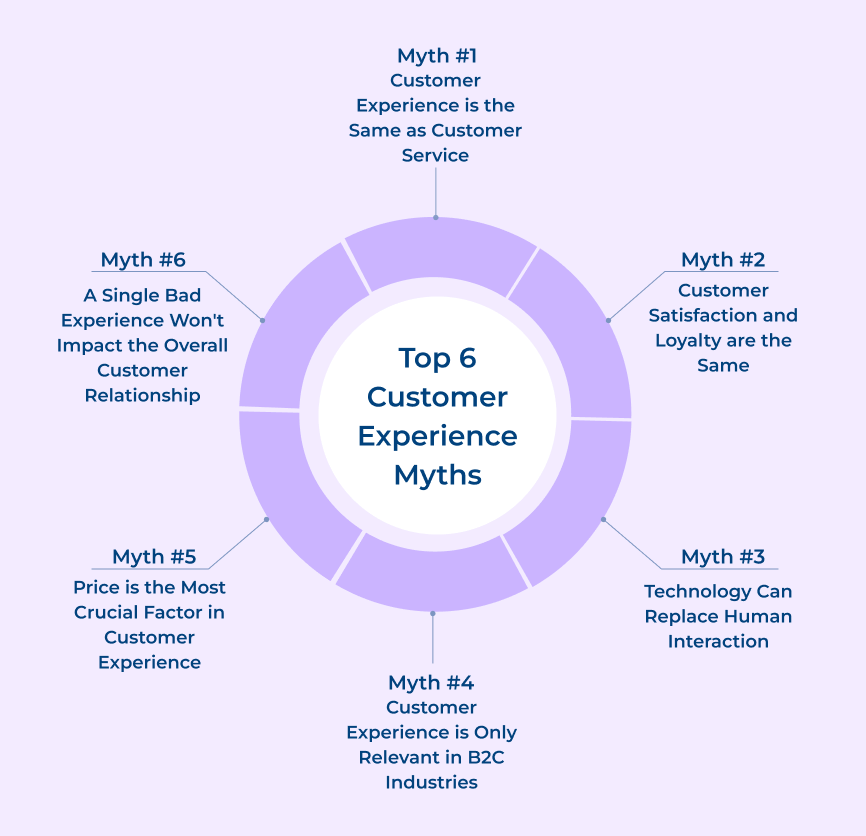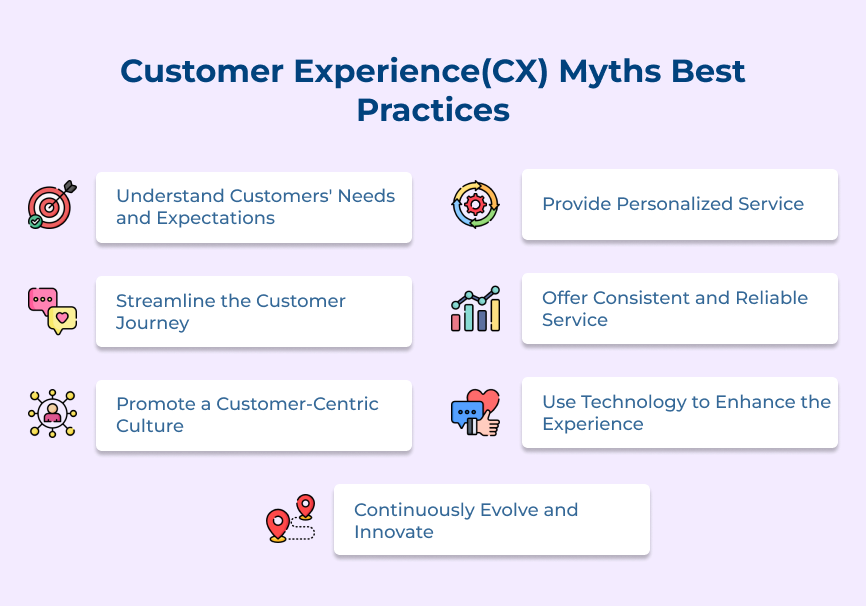Let’s consider an example to debunk this myth. Think of a customer who is satisfied with a particular fast-food restaurant. They think the food is good and the service is decent. It doesn’t necessarily mean they will always choose that restaurant over others or recommend it to their friends. Loyalty requires a deeper level of attachment and positive experiences.
Pro tips
- Aim to consistently exceed customer expectations to facilitate loyalty.
- Invest in building emotional connections with customers through personalized interactions and meaningful engagement.
- Prioritize building a strong brand reputation as it plays a vital role in earning loyalty.
Myth #3. Technology Can Replace Human Interaction
The availability of advanced artificial intelligence and automation makes it easy to assume that technology can completely replace human interaction. It stands to be one of the top CX myths that businesses need to bust. Technology certainly has its benefits, but it cannot fully replace human interaction. Many businesses fall into the illusion that replacing human interaction with technology will save them time and money.
Businesses need to focus on the fact that customers crave authentic human interaction. They want to feel valued and understood. Even though chatbots may provide quick responses, they will lack the empathy and problem-solving abilities that a human agent can bring to the table. Relying too heavily on technology will have detrimental effects on the business in the long run. Customers may feel frustrated and disconnected, leading to poor satisfaction.
Pro tips:
- Leverage technology to enhance customer interactions but never completely replace human touchpoints.
- Leverage technology to gather customer insights, enabling your team to deliver personalized experiences that resonate with individual needs and preferences.
Myth #4. Customer Experience is Only Relevant in B2C Industries
There is a common misconception that customer experience (CX) is only important in business-to-consumer (B2C) industries. Many believe that B2B companies do not need to prioritize CX as their customers are other businesses rather than individual consumers. The reality is customer experience is just as crucial in B2B industries as it is in B2C industries.
B2B companies may have a different target audience, but they still interact with individuals who make purchasing decisions on behalf of their organizations. Imagine a software company that provides solutions to other businesses. If their customer experience is poor, with slow response times and unhelpful support, there will be a potential loss of customers. It dispels the myth by showcasing that B2B industries do depend on CX to maintain and grow their client base.
Pro tips:
- Understand the customers’ unique business needs and cater to them accordingly to create a personalized experience.
- Respond promptly and efficiently to customer queries or concerns, showing a commitment to their satisfaction.
- Offer additional resources that can help businesses succeed and differentiate themselves from competitors.
Myth #5. Price is the Most Crucial Factor in Customer Experience
Price certainly plays a role in purchasing decisions, but it is not the sole determinant of customer satisfaction. Factors such as quality, convenience, product selection and customer service can all heavily influence their overall satisfaction. Price alone does not guarantee a positive experience, especially if these other aspects are lacking.
Let’s consider the example of a customer shopping for a new smartphone. Even though the price may initially catch their attention, they will also consider other features. The phone’s features, brand reputation and the level of customer support offered will all be taken into account. If the brand prioritizes price over quality, customers may end up with a subpar product that fails to meet their expectations.
Pro tips:
- Invest in product quality and customer service to create a superior experience that justifies premium prices.
- Communicate the unique value the brand offers beyond price by highlighting features, benefits and distinctive qualities.
- Provide personalized offers and incentives to enhance the overall customer experience
Myth #6. A Single Bad Experience Won’t Impact the Overall Customer Relationship
Providing an exceptional customer experience is crucial for any business, but several customer experience(CX) myths and misconceptions can hinder these efforts. One of the myths is the belief that a single bad experience won’t impact the overall customer relationship. Unfortunately, the misconception can be detrimental to the business. 86% of consumers would leave a brand after as few as two poor experiences.
Think of a customer who has been loyal to a particular brand for years but encountered a rude customer service representative during a recent interaction. Despite the customer’s long-standing relationship with the brand, the negative experience leaves a lasting impression. The customer feels undervalued and frustrated, leading them to question their loyalty. A single bad experience can result in lost sales, decreased customer loyalty and damage to the brand image.
Pro tips:
- Actively listen to customer feedback and address any concerns promptly.
- Implement a robust customer feedback system to identify and rectify any recurring issues.
- Always strive to exceed customer expectations to create a lasting positive impression.
Customer Experience(CX) Myths Best Practices
Let us go through the most common customer experience myths and best practices to cultivate a truly remarkable customer journey.














